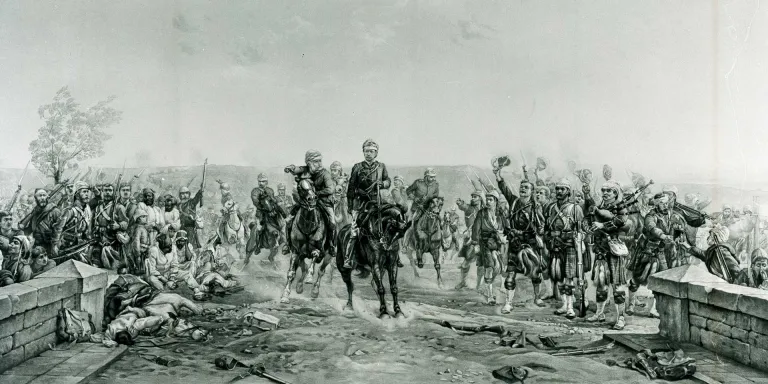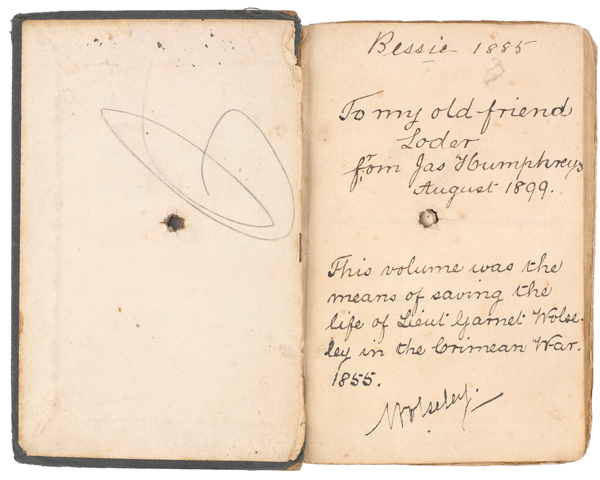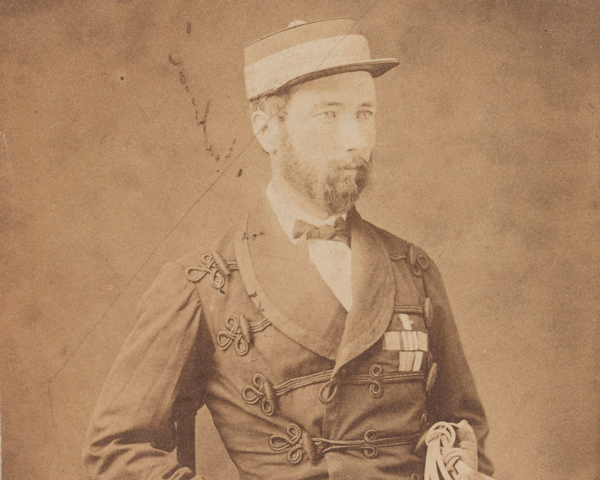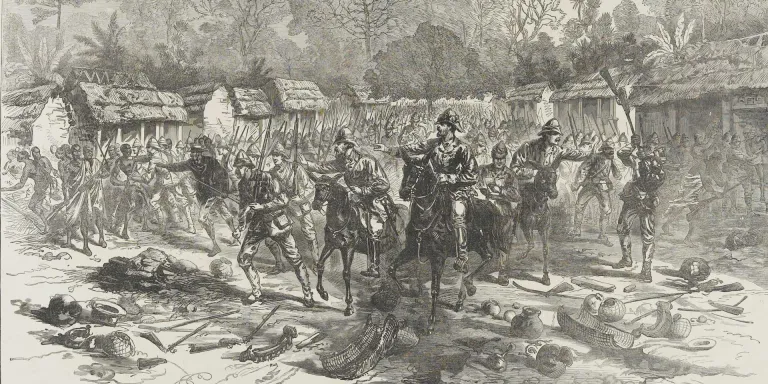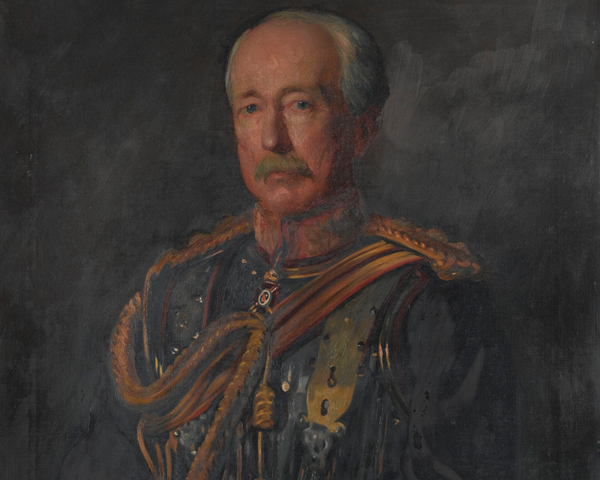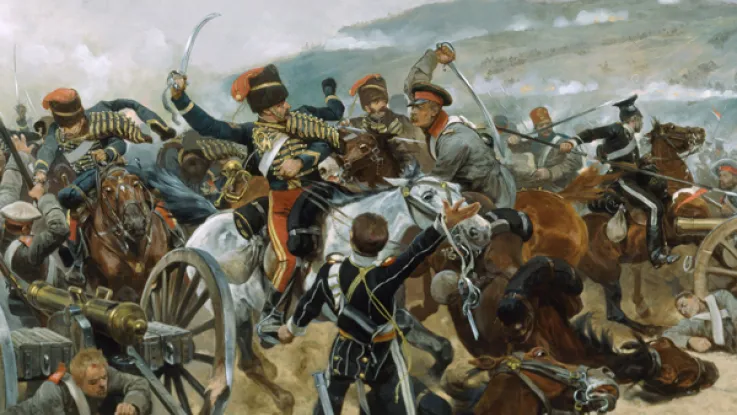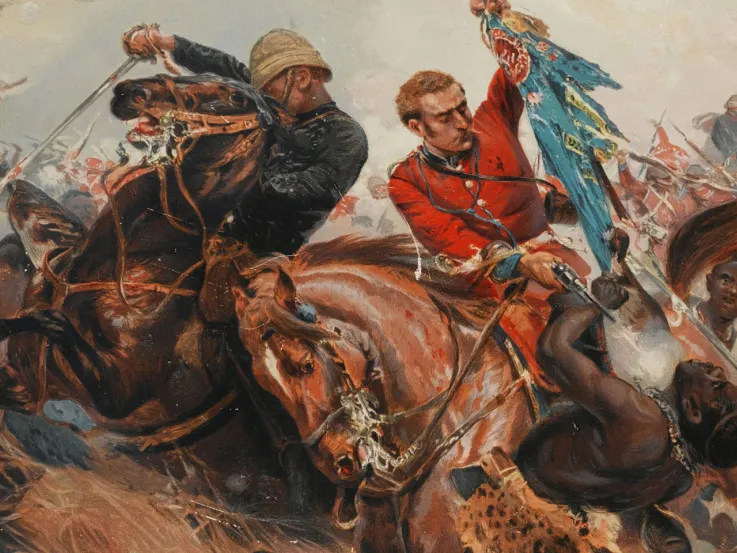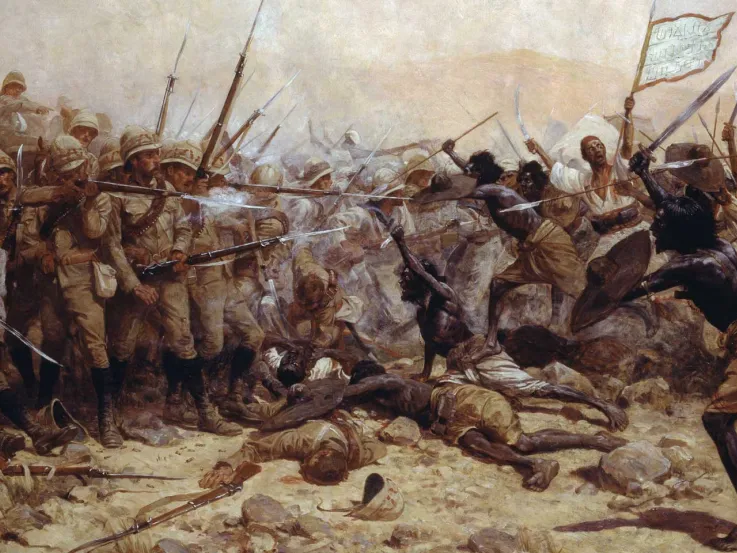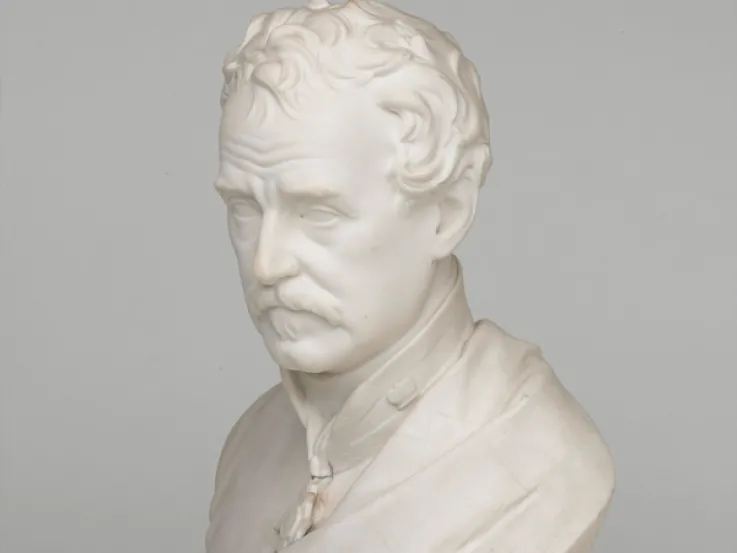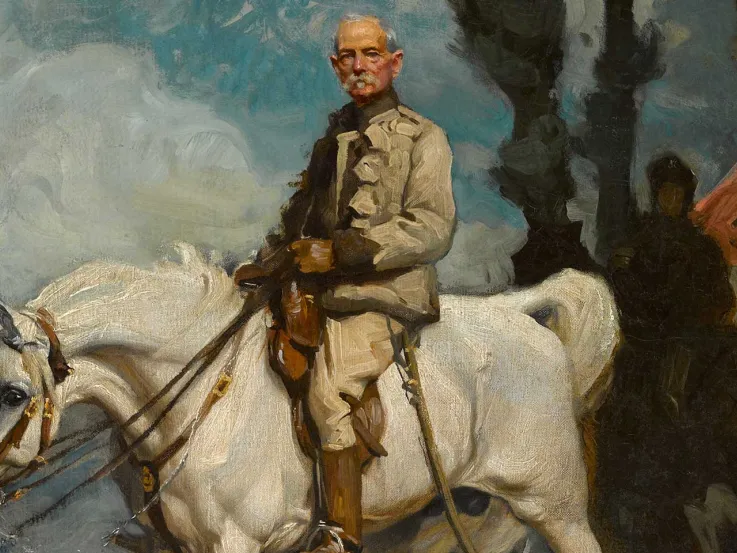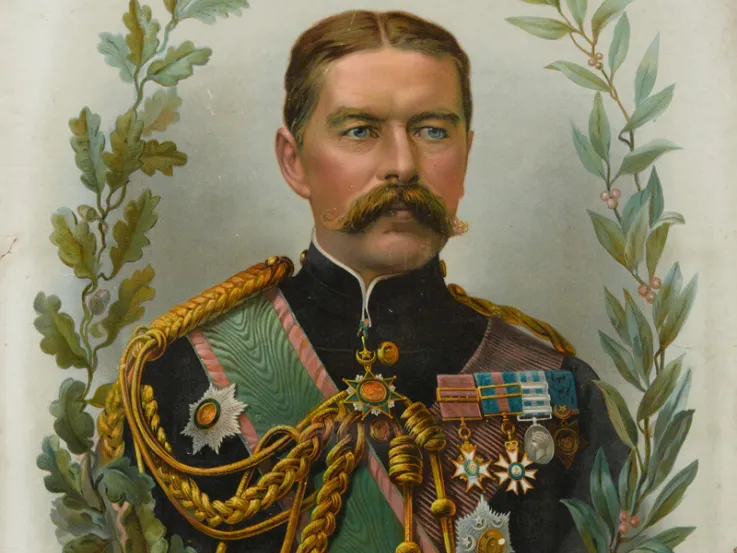Explore more from Great Commanders
Garnet Wolseley: The modern major-general
Related topics
'After the Battle of Tel-el-Kebir - General Wolseley cheered by Highlanders', 1882
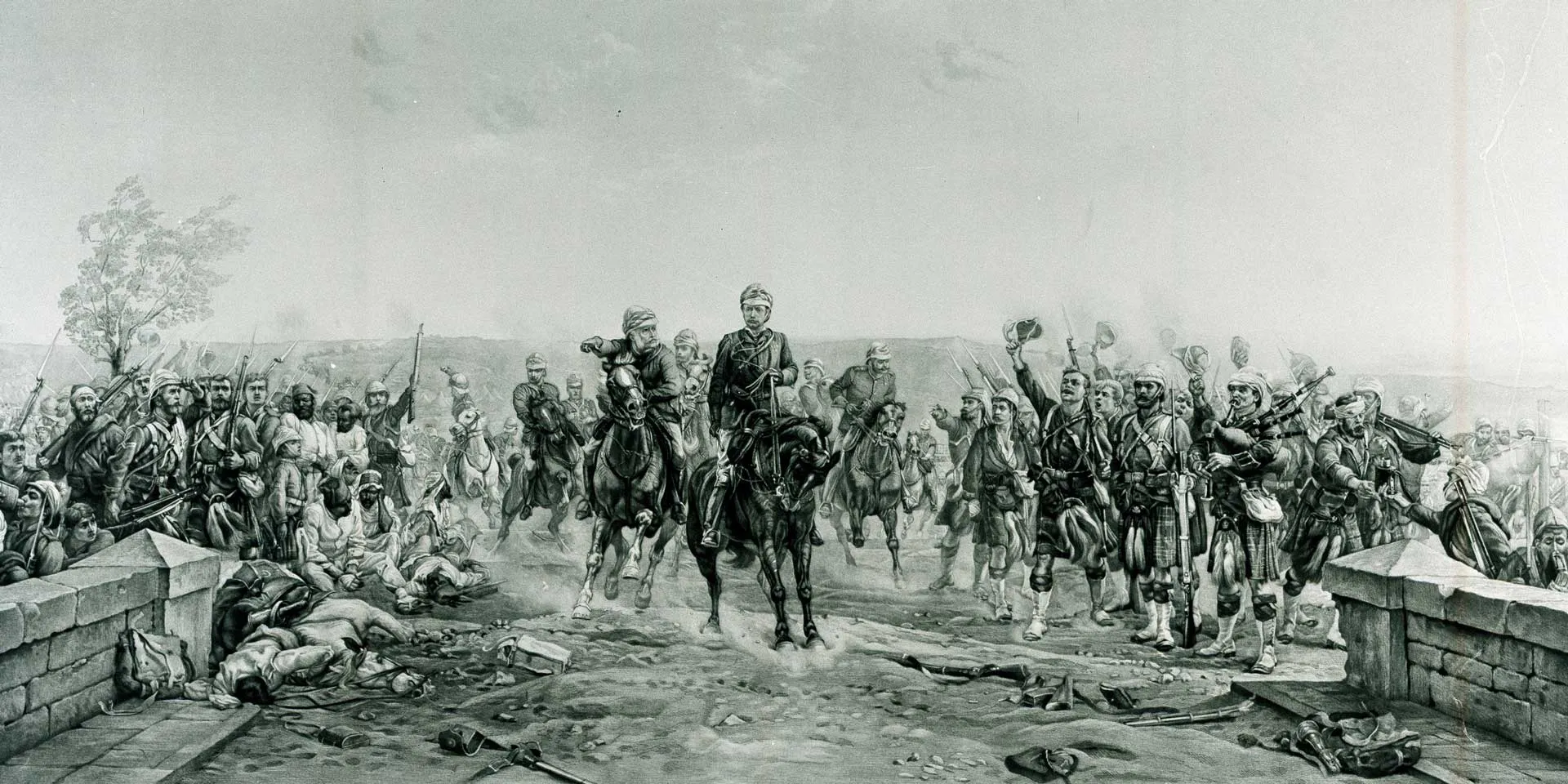
Early career
Garnet Wolseley (1833-1913) was commissioned into the Army in 1852. By 1861, he had seen active service in Burma, Crimea, India and China at the cost of a severe leg wound and the loss of an eye.
In 1870, he commanded the Red River expedition to enforce Canadian federal authority against the French Métis inhabitants of what is now Manitoba. Wolseley led his men through hundreds of miles of Canadian wilderness in a successful campaign that owed much to his logistical skills.
Lieutenant Garnet Wolseley’s French grammar book that saved his life when it stopped a bullet at the Siege of Sevastopol, c1855
Lieutenant-Colonel Garnet Wolseley, 1860
Third Ashanti War
In 1873-74, Wolseley commanded the expedition to Ashanti (now in Ghana), the campaign that made him a household name in England. After capturing Kumasi, he was promoted major-general, knighted, thanked by both houses of Parliament, and awarded a grant of £25,000.
Administrator and Commander of the Forces in Natal in 1875, he then became the first ever British High Commissioner to Cyprus in 1878.
Major-General Sir Garnet Wolseley entering Kumasi, 1874
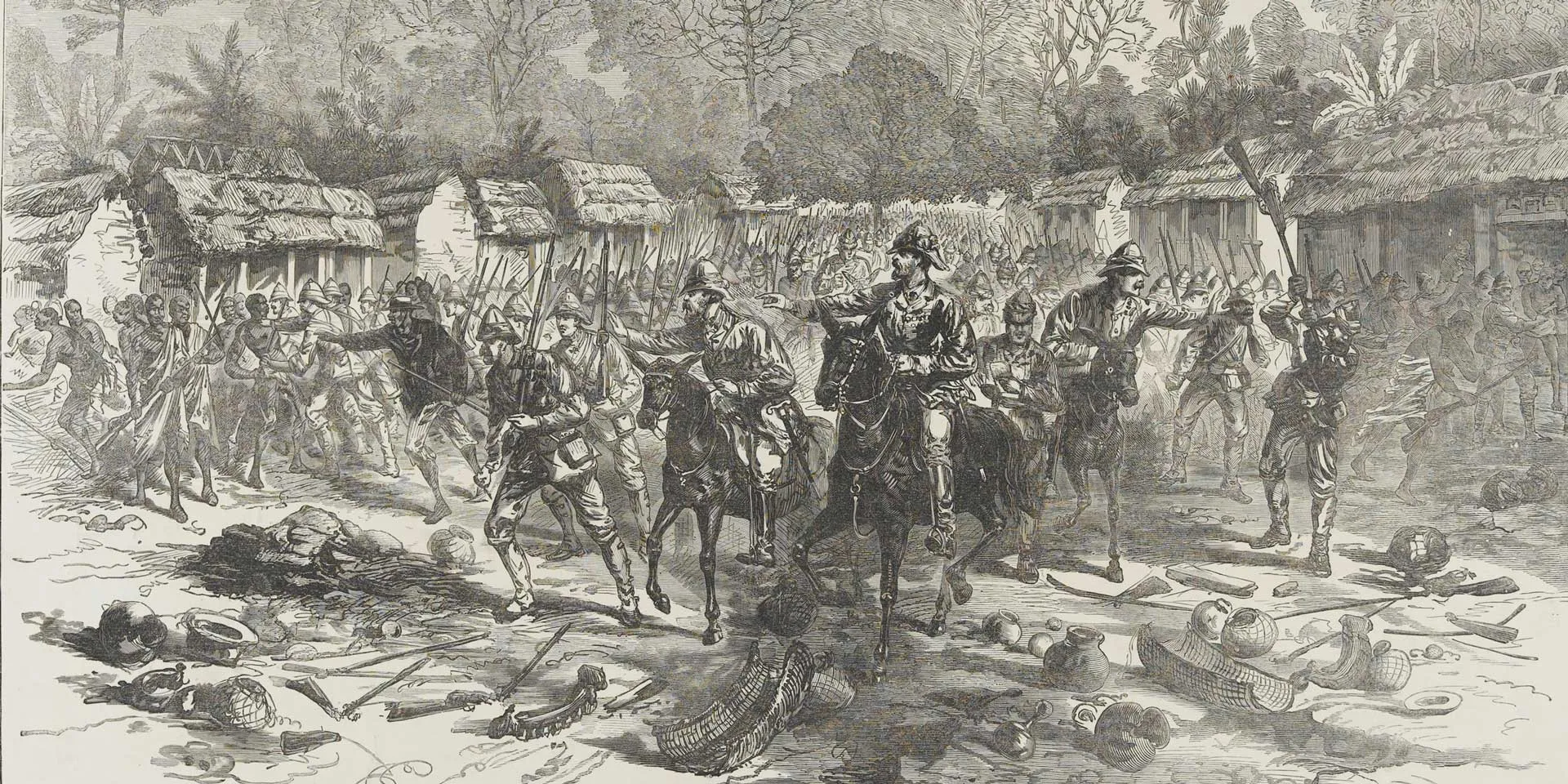
Reformer
In favour of Army reforms, Wolseley gathered together a group of able officers known as the 'Wolseley ring' that included Redvers Buller, Evelyn Wood, Henry Brackenbury and George Colley, among others. They accompanied Wolseley on campaign and supported his recommendations. But his reliance on these rising stars of the British Army bred resentment among those excluded.
Wolseley also wrote a number of books, including 'The Soldier's Pocket Book' (first published in 1869), the forerunner of field service regulations.
General Sir Garnet Wolseley, 1884
South Africa
Following the Zulu victory at Isandlwana in 1879, Wolseley was appointed Governor and High Commissioner of Natal. However, by the time he arrived, King Cetshwayo had been defeated and Wolseley's role was limited to the capture of the Zulu leader.
After granting the Transvaal the constitution of a crown colony, Wolseley returned home to the more congenial appointment of Quartermaster-General at the War Office. For his services in South Africa he was made a Knight Grand Cross of the Order of the Bath.
His struggles to continue the Cardwell reforms of the Army brought him into conflict with the Commander-in-Chief, the Duke of Cambridge - a cousin of Queen Victoria - whom he privately called 'that great German bumble-bee'. He was subsequently parodied for these views by Gilbert and Sullivan in their comic opera, 'The Pirates of Penzance' (1879).
Egypt and Sudan
In 1882, Wolseley was appointed Adjutant-General. However, his tenure was cut short to allow him to command the British forces in Egypt that went on to suppress the Arabi Revolt in a quick and brilliant campaign.
Raised to the peerage as Baron Wolseley, and thanked by Parliament again, he then led the unsuccessful expedition to relieve the besieged Major-General Charles Gordon at Khartoum.
Field Marshal Viscount Garnet Wolseley, 1910
Field Marshal Viscount Garnet Wolseley's Order of Merit, 1902
All in order
Wolseley was appointed Commander-in-Chief in Ireland in 1890 and promoted to field-marshal in 1894. The following year, he was made Commander-in-Chief at Horse Guards, where he continued to fight for reform. This included a new system of reserves that did much to bolster the campaign against the Boers in South Africa (1899-1902).
During this time, he faced opposition from the Secretary of War, Lord Lansdowne, and the group around Lord Roberts.
Wolseley eventually retired in 1901. But his reputation for efficiency led to the phrase ‘everything's all Sir Garnet’, meaning all is in order.

